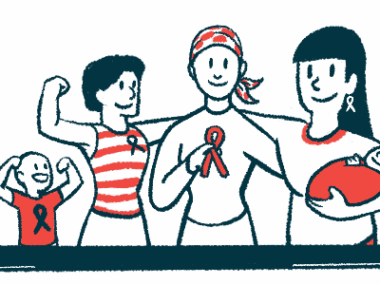Sickle cell awareness begins with conversation and requires action
I'm pleased this disease is getting more exposure, but there's more work to do
Written by |

As September comes to a close, so does Sickle Cell Awareness Month, an annual time dedicated to highlighting the realities, challenges, and resilience of people living with sickle cell disease. While the fight for awareness and equity continues daily, I’m cautiously optimistic that something is shifting.
This year, I noticed an increase in the visibility of the awareness month, including social media campaigns, posters in clinics, feature stories in the media, and conversations in everyday settings. This is a small but meaningful step forward for a disease that has long been overlooked. But awareness is just the beginning.
Know your genotype
One of the simplest yet most powerful actions anyone can take is to ensure they know their genotype. Sickle cell disease is inherited, as two parents carrying a defective gene copy can pass the disease to their child, often without knowing they have the sickle cell trait. But with informed choices, sickle cell disease can be prevented.
Getting tested is quick, and testing is widely accessible. Knowing your genotype helps protect future generations. It’s not just about accessing medical information but about making empowered and compassionate decisions for your family, partner, and community.
If you haven’t already done so, please get tested. Encourage your friends, siblings, and partner to do the same. You can contact your local general practitioner, blood donation center, or sickle cell center.
Living with sickle cell disease isn’t easy. The pain crises may be invisible to the eye, but are very real. Describing what it feels like when your body turns against you is challenging. When pain flares up suddenly and relentlessly, without warning, you are left to fight through it with nothing but determination and hope.
A sickle cell patient may “look fine,” but illness isn’t always visible. It is crucial to be kind, patient, and understanding of others. Whether you know someone with sickle cell disease or not, choose compassion and empathy. You never know the battle someone is facing behind a brave exterior.
Keep going
To everyone living with sickle cell disease: I see you. I understand the strength it takes to get out of bed on days when your body feels like it’s breaking. I know the frustration of missing out, the fatigue that clings to your bones, the stares in the hospital, the skepticism, the mislabeling, the endless explanations, and the feeling of being a burden to others.
But please hear this: You are not a burden. You are not weak. You are not invisible. You are powerful beyond measure. Your story matters. Your pain is valid. Your presence in this world is a gift. You’ve made it through 100% of your hardest days, and that alone makes you a fighter.
Don’t let the world’s ignorance dull your spirit. Keep advocating and showing up in whatever way you can. You deserve joy, health, and a life full of love. And please remember to rest when you need to!
We also must acknowledge a difficult truth: The medical system often fails sickle cell patients.
Too many of us have been dismissed, disbelieved, or mistreated — accused of drug-seeking when we’re in unbearable pain, left waiting for hours while we deteriorate in hospital chairs, and treated as less than because our condition predominantly affects Black and brown individuals.
This isn’t merely about combating bias; it’s about saving lives and maintaining patient dignity.
To every doctor, nurse, paramedic, pharmacist, and caregiver: Remember, we are not second-class patients. We deserve the same urgency, respect, and care as anyone else. Please listen to us. Believe us. Advocate for us. Educate yourselves about sickle cell disease, and lead with empathy. You have the power to make a world of difference during someone’s darkest hour.
As we conclude Sickle Cell Awareness Month, let this not be the end of the conversation, but the beginning of deeper action in clinics, schools, workplaces, relationships, and policymaking.
Awareness matters. Compassion matters. Access to treatment matters. Sickle cell patients matter.
Note: Sickle Cell Disease News is strictly a news and information website about the disease. It does not provide medical advice, diagnosis, or treatment. This content is not intended to be a substitute for professional medical advice, diagnosis, or treatment. Always seek the advice of your physician or other qualified health provider with any questions you may have regarding a medical condition. Never disregard professional medical advice or delay in seeking it because of something you have read on this website. The opinions expressed in this column are not those of Sickle Cell Disease News or its parent company, Bionews, and are intended to spark discussion about issues pertaining to sickle cell disease.







Leave a comment
Fill in the required fields to post. Your email address will not be published.